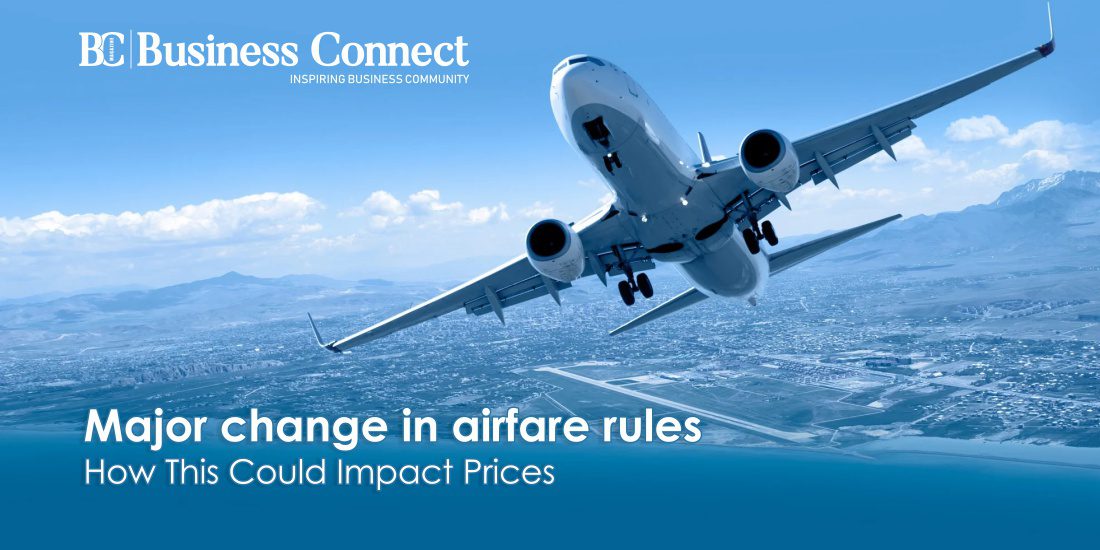Major change in airfare rules: How This Could Impact Prices
The Ministry of Civil Aviation has removed the last Covid-related operational restrictions on domestic air travel, which were price caps on domestic airfares. This means that beginning on August 31, fares will be regulated by the market, with airline operators expected to offer competitive prices. In an order issued earlier this month, the Civil Aviation Ministry stated that the decision to repeal the price caps was made after an analysis of the current state of affairs.
The airlines have been putting pressure on the government to reverse the price bands because they contend that the caps are preventing them from fully recovering from the pandemic slump. In its own defence, the government had claimed that these ceilings were essential to protect the passengers from having to pay a staggering sum. JyotiradityaScindia, the Union Aviation Minister, claimed in May that the high cost of ATF and other domestic factors had encouraged his government to maintain price caps.
The Reason behind Price Cap:
When domestic operations resumed after a two-month break, the caps were first introduced in May 2020. The government had proposed seven bands for domestic economy class travel based on the time duration of flights. The plan was to protect the travellers while also averting a fare war.
The band included flights that lasted up to 40 minutes and those that lasted 180–210 minutes. According to the regulations, the cost of a ticket for a flight lasting under 40 minutes could not be less than Rs 2,900 (excluding GST) or more than Rs 8,800 (excluding GST). This rule even applied to significant trunk routes. The lower band was floated to support the financially struggling airlines while the upper band was floated to protect customers from high prices. Later, on a 15-day rolling cycle, the ministry loosened the fare restrictions.
Airfares Now Onwards:
The removal of the cap will enable carriers to offer customers competitive prices in advance of the holiday season. After the bands are taken off, the price of a ticket will be determined by all standard factors, including supply and demand, competition, and airline monopoly.
Airlines can now provide discounts on specific routes, which was previously prohibited by the lower and upper caps. On some routes, travellers can expect competitive fares, though carriers will still charge more on monopoly routes. Additionally, it is anticipated that prices will be high on popular trunk routes like Mumbai-Delhi and Delhi-Bengaluru.
Furthermore, industry experts have noted that last-minute bookings of flights may now result in lower prices but it also matters when you travel. The announcement has been made at a time of low traffic. Airlines executives reportedly think a fare war may break out, according to one financial daily. If that occurs, ticket costs will decrease. As a result of less traffic, airline executives predict that prices will drop significantly at least through the end of September. In the holiday season, which begins in October, they do anticipate airlines to maintain pricing restraint. However, it is possible that airlines with a dire need for liquidity could still offer lower prices.
The average one-way fares on some of the busiest domestic routes have dropped as much as 31%, according to data provided by the travel website ixigo, for tickets purchased about two weeks in advance. A ticket between Delhi and Mumbai, for instance, dropped from Rs 7,587 to Rs 5,801 in the second week of August, a 24% decrease.
The cost of tickets decreased by 20% for the Delhi-Goa route and by almost 15% for the Mumbai-Chennai route. But from a high base, the decline began. Airlines and online travel agencies driving the trend were looking to profit from the extended Fourth of July weekend. In comparison to January of this year, the fares in July were 25 to 30% higher.
Must Read:-
- Top 10 shoe brands in India for men & women 2021
- Top 10 Schools in Delhi 2021, list of best schools for your child
- Top 10 richest actors in the world 2021
- Business vs Job: Which is Better
- Top 10 series on Netflix 2021, don’t miss these must-watch series
- Upcoming List of Top Indian Web Series of 2021
- Top 10 richest player of the world 2021
- Top 10 highest paid CEO in the World
- Top 10 richest person of India
- Top 10 Highest Paid CEOs of India
- The Success Story of Steve Jobs
- Top 10 Business Magazine In India
- Top 10 Business Newspaper In India
- Top 10 richest billionaires in the world 2021


